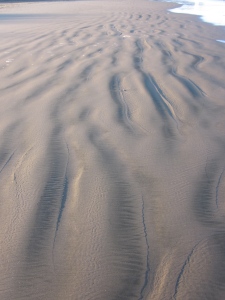Here are my three top picks for a poem that sounds good.
Sam has written a poem that sounds great. I love the way the ‘eek’ sounds run through the poem like the squeaking door. I also like the way the title says one thing (something scary!) and then the poem says another (something ordinary!). I like the way Sam has a few words on each line — it adds to the atmosphere of the poem. Awesome job Sam (BTW everyone Sam told me he is a boy). I look forward to seeing more poems by you. There must be something in the water at your school because Ohaupo School is sending in very cool poems. Sam will get a copy of Margaret Mahy’s The Word Witch thanks to HarperCollins NZ.
Spook in the Night
Eeeeek eeeeek
is the sound
of our door
in the night
I am in bed
and the creak
gives me
a fright
Mum gets some oil
to fix
the loud
squeak
And now
I find
that I can
sleep
Sam S aged 8, Year 4 Ohaupo School
Luke’s poem has lots of different sounds. It sounds great read aloud. There are some words that shine in the lines ( like ‘pop’ and ‘bright blur’). I love the fierce energy and then the way the ending catches you by surprise. It is a poem I want to read more than once. Magnificent job Luke. Luke will get a copy of Margaret Mahy’s The Word Witch thanks to HarperCollins NZ.
The Ferocious Giant
I look out the window
There are trees swaying side to side
Leaves flying towards the sky
Clouds pushing and shoving
Sudenly red eyes pop out and sharp black teeth from inisde a mouth
It opens and gets deadlier
There’s a bright blur behind the ferocious giant
It gets smaller and smaller
Woosh!
Rain drops like a busted water balloon!
Luke W aged 10, Year 6 Manurewa East Primary
Madeleine shows how you can play with the number of words on line, use rhyme here and there, and use a word or two that shines (swooped). Her poem sounds good! I loved ‘silent wings’ and then in the next line ‘swooped.’
I will pop a copy of my poems Macaroni Moon in the mail for you (there are only a few copies left as it is out of print!). Great job Madeleine!
The Haunted House
As I walked into the Haunted House,
I heard a creeping on the floor,
I turned around …
and a scary Ghost flew straight through the door.
I was shaking,
not knowing what to do,
then on silent wings
a Morepork swooped down and whispered “BOO!”
I slowly backed away.
‘This was not my favourite day,’
I say!
Madeleine P aged 12, Year 8 Campion College Gisborne






